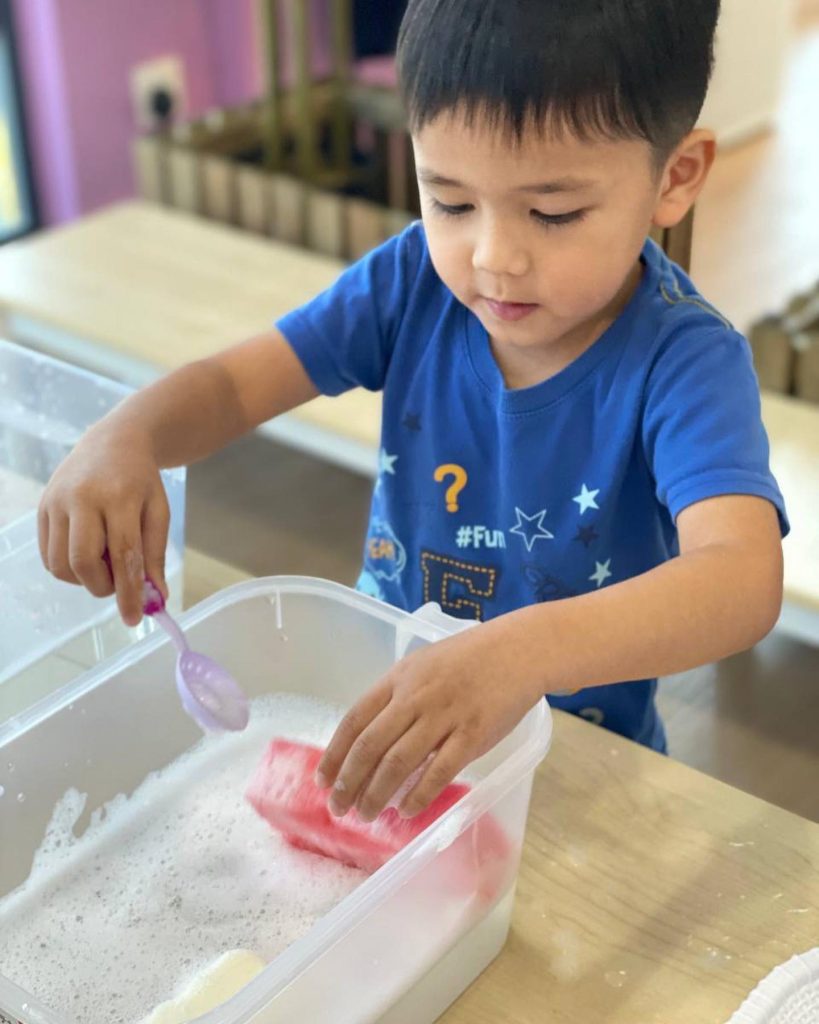As parents, you are your child’s first and most important teacher. At Rauf International Preschool in Eco Ardence, Setia Alam, we believe that learning should not be confined to the classroom alone. Home learning activities can be incredibly effective in supporting your child’s development and reinforcing what they learn at preschool.
Table of Contents
The Importance of Home Learning Activities
Home learning activities offer numerous benefits for preschool children:
- Reinforcing Learning: Repeating concepts learned at school helps cement them in a child’s mind.
- Encouraging Bonding: Learning activities provide quality time for parents and children.
- Fostering a Love for Learning: Making learning fun at home helps children develop a positive attitude toward education.
- Supporting Individual Development: One-on-one activities allow you to tailor learning to your child’s needs and interests.
- Building Confidence: Success in learning activities helps build a child’s self-confidence.
Learning Activities by Age
For Children Aged 2-3 Years
Literacy Activities
- Daily Storytime: Read together every day, pointing out pictures and discussing the story.
- Songs and Rhymes: Sing nursery rhymes with repetitive words and rhythms.
- Letter Recognition Games: Introduce letters through alphabet books, magnetic letters, or letter cards.
- Storytelling: Encourage your child to retell their favorite stories in their own words.
- Sound Games: Play games that focus on the beginning sounds of words.
Math Activities
- Daily Counting: Count objects during daily activities (e.g., stairs, blocks, toys).
- Matching Games: Match objects by color, shape, or size.
- Sorting Activities: Sort objects into categories (e.g., toys, clothes, food).
- Shape Games: Introduce basic shapes through games and art activities.
- Cooking Time: Involve your child in simple cooking activities that involve measuring.
Science Activities
- Sensory Exploration: Provide sensory bins with different materials to explore.
- Nature Observation: Observe plants, insects, and weather during walks.
- Water Experiments: Explore concepts of floating and sinking with different objects.
- Planting: Plant seeds and observe their growth over time.
- Prediction Games: Make simple predictions about what will happen in daily activities.
For Children Aged 4-6 Years
Literacy Activities
- Phonics Introduction: Help your child identify letter sounds and blends.
- Word Games: Play games like “I Spy” that focus on letter sounds.
- Writing Together: Encourage your child to write letters, their name, and simple words.
- Book Making: Create simple storybooks together, with your child contributing ideas and illustrations.
- Rhyming Games: Play games that focus on rhyming words.
Math Activities
- Number Games: Play board and card games that involve counting and number recognition.
- Measurement Activities: Use a tape measure or ruler to measure objects around the house.
- Pattern Games: Create and continue patterns using beads, blocks, or other objects.
- Money Introduction: Introduce coins and money values through shop play.
- Time Games: Discuss time concepts using clocks and calendars.
Science Activities
- Simple Experiments: Conduct simple experiments that demonstrate basic science principles.
- Recycling Projects: Create projects using recycled materials to teach about conservation.
- Weather Observations: Record and discuss daily weather changes.
- Magnet Exploration: Explore the properties of magnets with different objects.
- Classification Activities: Classify animals, plants, or objects by their characteristics.
Making Learning Fun
The key to successful home learning activities is making them fun and stress-free:
- Follow Your Child’s Interests: Choose activities based on what interests your child.
- Keep It Fun: If your child loses interest, switch to another activity or try again another day.
- Integrate Into Daily Routines: Make learning part of daily activities, not a separate task.
- Praise Effort: Focus on effort and process, not just the end result.
- Be a Model: Show your own interest in learning and exploration.
Supporting Different Learning Styles
Every child learns differently. Try various approaches to identify what works best for your child:
Visual Learners
- Use pictures, charts, and visual materials
- Watch educational videos together
- Create simple mind maps or diagrams
Auditory Learners
- Sing songs and use music
- Read aloud and discuss stories
- Use verbal games and storytelling
Kinesthetic Learners
- Incorporate movement into learning
- Use hands-on activities and manipulatives
- Create active games that incorporate learning concepts
Partnering with Rauf International Preschool
At Rauf International Preschool in Eco Ardence, Setia Alam, we believe in a partnership approach with parents. Here are ways to optimize your child’s learning:
- Ongoing Communication: Discuss with your child’s teacher what they are learning at school.
- Align Themes: Coordinate your home activities with current themes at preschool.
- Share Observations: Inform teachers about your child’s interests and achievements at home.
- Attend Parent Workshops: Join workshops and sessions offered by our preschool.
- Use Our Resources: Ask about recommended resources and activities for home use.
Conclusion
Home learning activities don’t need to be complicated or require extensive preparation. The most important thing is to provide a supportive environment where your child feels safe to explore, ask questions, and learn through play.
At Rauf International Preschool in Eco Ardence, Setia Alam, we are committed to supporting your child’s learning journey, both inside and outside the classroom. Together, we can provide a strong foundation for their academic success and holistic development.
For more information about our programs or to schedule a visit to our preschool, please contact us here or visit us at Rauf International Preschool, Jalan Eco Ardence C U12/36C, Setia Alam, 40170 Shah Alam, Selangor.

